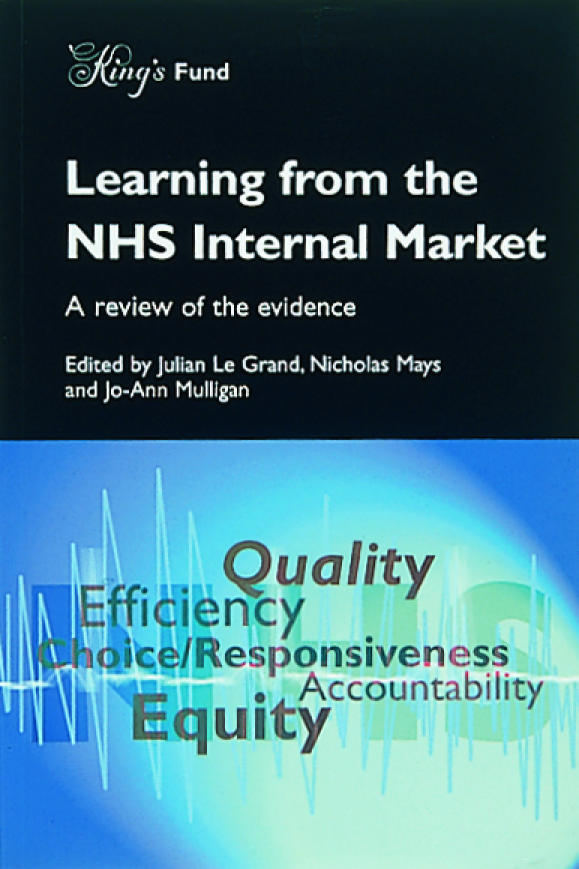Julian Le Grand, Nicholas Mays, Jo-Ann Mulligan
King’s Fund, £17.95, pp 196 
ISBN 1 8571 7215 9
———————
Rating: ★★★
The reforms introduced to the NHS in 1991 have attracted enormous attention from within the United Kingdom and outside. The attempt to make the NHS more responsive and efficient by requiring hospitals and other providers to compete for resources was one of the last acts of Margaret Thatcher before she was replaced by John Major. Researchers have investigated various aspects of the NHS internal market, and this book synthesises the results.
The most surprising conclusion is that the market seems to have had relatively little measurable impact. The authors use an evaluation framework based on criteria such as efficiency, equity, and choice, and they show that the research evidence indicates minimal change during this period. Furthermore, even when change can be detected, it is difficult to disentangle the effects of the market from other developments. In making these points, the authors emphasise that their conclusions are based on the research that has been done and that other kinds of change may have occurred but may not have been captured.
Learning from the NHS Internal Market can be read at two levels. Most obviously, it is a useful source of information about the research evidence on the reforms. As such, it is both thorough and clear, helping readers to make sense of the experience of fundholding, health authorities, and NHS trusts, and exploring implications for the future.
The book can also be read as an example of the difficulty of carrying out research into healthcare reform. Government policy is rarely introduced under conditions that allow comparisons to be made between interventions and control groups. In addition, the objectives of policy are often unclear, and assessing impact and outcome is beset with difficulties. The implication is that study design needs to reflect the complexity and messiness of the real world rather than seeking to emulate a traditional scientific model.
The question that arises is why did Margaret Thatcher’s “big bang” have such a muted effect? One explanation, favoured by the authors, is that the incentives that were put in place to bring about change were too weak. Another possibility is that the reforms were based on a incomplete theory of human behaviour. Put simply, doctors, managers, and others may be self interested individuals who are influenced by the incentives they confront, but they may also be altruistic professionals who are alienated rather than motivated by healthcare markets. A policy that appeals to their inclination to cooperate and that recognises the role of altruism and trust may therefore have a greater impact than one based on competition. It is this insight that provides part of the rationale for the Labour government’s much trumpeted “third way.”
The eclectic mix of policy levers that make up the third way suggest a more complete understanding of what motivates doctors and managers than the theory that lay behind the internal market. The combination of cooperation, regulation, and a residue of competition will be used to bring about improvements in performance as part of the NHS modernisation programme. The next phase of healthcare reform offers an opportunity to test the value of these levers, possibly to destruction.


